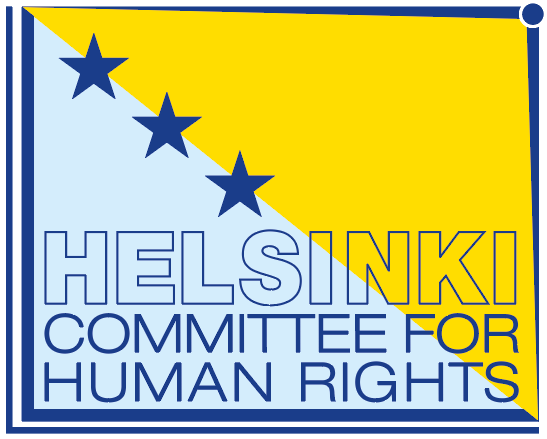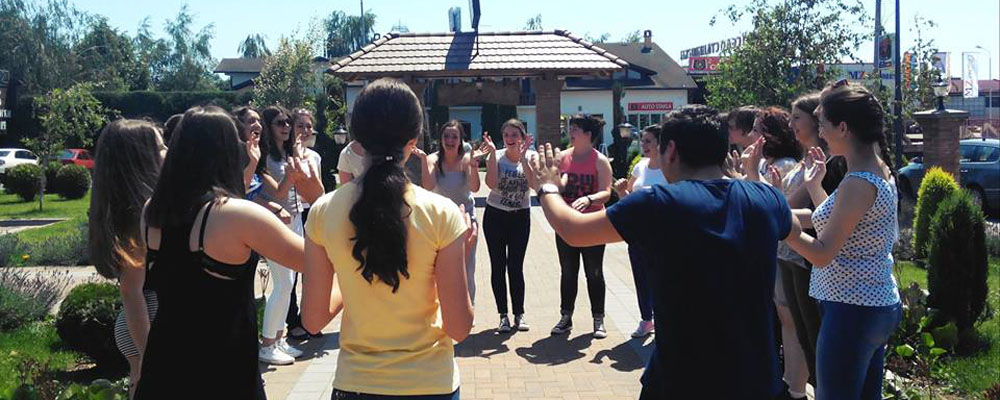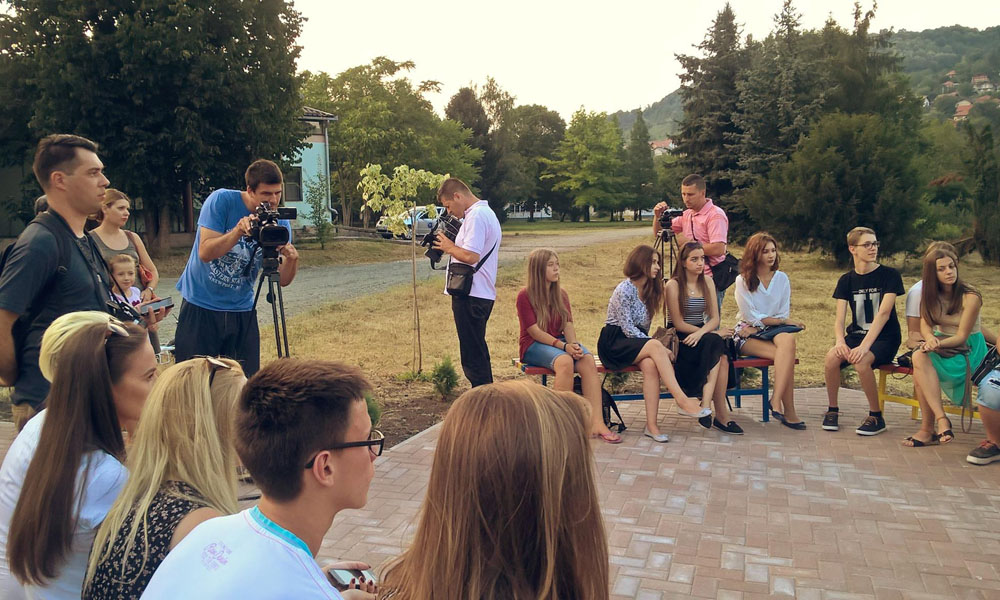Bosnian Youth Step Across Ethnic and Religious Divides
 Teenagers from Bosnia’s divided north-east came together at a youth peace camp near Sarajevo and found they could break down barriers that have torn their communities apart.
Teenagers from Bosnia’s divided north-east came together at a youth peace camp near Sarajevo and found they could break down barriers that have torn their communities apart.
“Peace is tolerance toward everybody, common cooperation between all religions in Bosnia. It’s all about respect,” says 16-year-old Milica Gatarevic from Bijeljina. She smiles, then sums up by saying: “It’s accepting everyone and being honest.”
Her 17-year old friend from Brcko district, Mario Gluhakovic, nods and adds eagerly: “Yes… It’s about living in one community. We are a community here in Bosnia and Herzegovina. We just have a lot of cultures. We need tolerance and just to stop arguing.”
Milica and Mario were two of the 40 high school students from the Bosnian towns of Srebrenica, Brcko, Orasje and Bijeljina taking part in the Youth Peace Camp project which aims to give teenage.
The cities are all located in the north-eastern region of Bosnia and Herzegovina, but they are a world apart, as are the children living in them.rs the knowledge required to foster lasting peace and reconciliation.
Srebrenica’s Serb and Bosniak residents have been divided by the mass crimes committed during the 1995 genocide; Bijeljina is part of the Serb-dominated Republika Srpska entity; Orasje is in the Bosniak-Croat Federation of Bosnia and Herzegovina, while Brcko is a district on the border between Republika Srpska and the Federation that remained inhabited by Bosniaks, Serbs and Croats after the war and is run with the help of the international community in an attempt to show that different ethnic groups can live together.
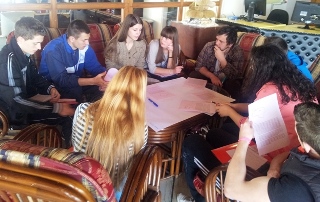
The peace camp took place this week on Mount Jahorina above Sarajevo, organised by the Interactive NGO and Republika Srpska’s Helsinki Committee for Human Rights, with the help of the US embassy.
“They will learn about religion, human rights, minority rights, transitional justice and non-violent communication. Each day they also have a creative workshop in either painting, photography, acting or journalism in which they prepare something about what they learn. We hope that at the end, they will develop into advocates in their communities,” said Aleksandra Letic, one of the organisers from the Helsinki Committee.
Milica chose acting workshops. She says she views the experience as an opportunity to learn about “promoting peace everywhere”. Meanwhile, Mario is into journalism. He hopes to write a blog one day. His aim is to learn as much as he can about all the religions in Bosnia.
Letic explains that the four towns which were chosen for the project – Srebrenica, Brcko, Orasje and Bijeljina – had deep social and economic connections before the 1990s conflict erupted, and she hopes they might have a common future.
“Orasje and Brcko were extremely connected before the war. Today Brcko is isolated both administratively and socially, which is a tragedy. Orasje is gravitating towards Croatia. Srebrenica is burdened by its past and Bijeljina is extremely closed today,” Letic said.
“One day these cities will have to be politically connected again, but the young people have never had an opportunity to meet,” she said.
Letic, who also worked on drafting Bosnia’s transitional justice strategy, said it was vital to bring young people of different ethnicities and background to teach them about the war.
“Without facing the past, we cannot move past it. The government is doing nothing to assist this process, so if we from the NGO sector leave it alone, then there is no chance to move forward
The war is an everyday burden on all of us. It’s like a purple elephant walking the street and we are pretending not to see it, but the young people will have to carry through the changes. We hope to give them the tools and knowledge,” she explained.
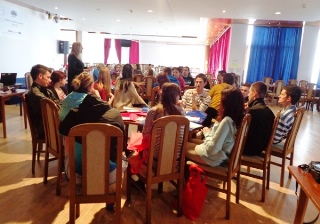
Milica and Mario walk back from the discussion, joking with each other about what they had said, as they go on to a lecture by renowned Bosnian director Dino Mustafic about the role of social activism in art.
Mustafic said that every artist’s role is to provoke a response from their audience and to make the viewer face society’s taboos.
“The taboo of this society is that we are still living in an era of social and ethnic divisions in Bosnia and Herzegovina. It will fall upon your generation to break those shackles,” he told the teenagers.
Milica and Mario both said the camp had produced positive results.
“I am so happy we got along so well so quickly,” said Milica.
